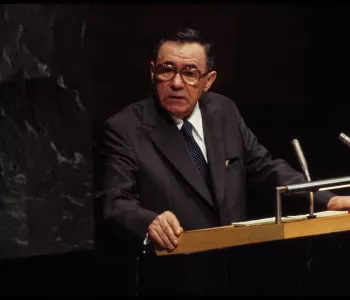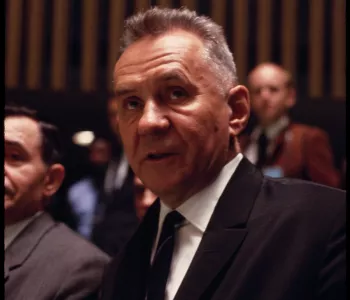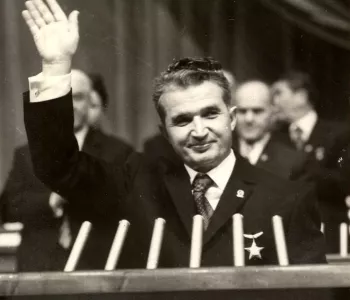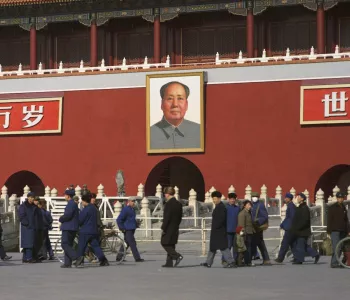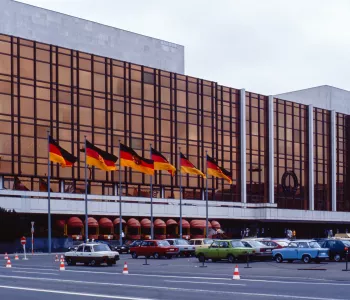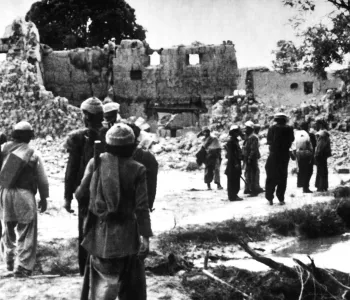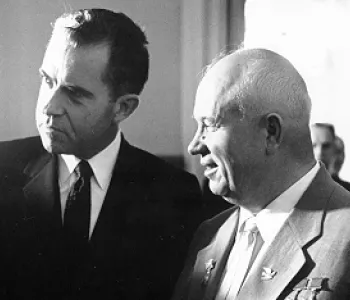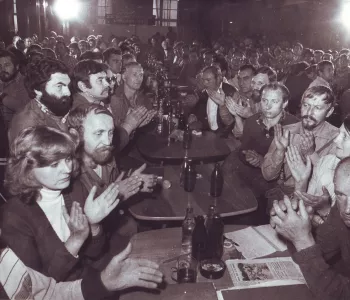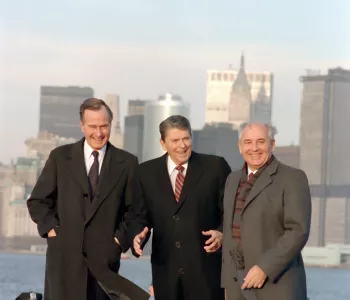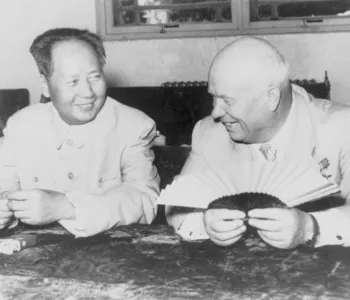Leonid Ilyich Brezhnev, leader of one of the two most powerful nations in the world, was born to Russian parents in the Ukrainian mining town of Kamensk in 1906. Little is known about his youth, except that at age 15 he went to work in the steel mill that employed his father.
After the Russian Revolution, Brezhnev pursued a technical education and became a land surveyor. But his political ambitions soon became apparent: He joined the Communist Party in 1931, then held a series of local party posts. The young apparatchik showed a remarkable ability to correctly survey the political landscape. After Stalin's death, Brezhnev correctly tied his fortunes to Nikita Khrushchev, helping the new Soviet premier pursue his "Virgin Lands" agricultural campaign in Kazakstan (where Brezhnev was serving as first secretary of the Communist Party), and in supporting Khrushchev during an aborted attempt to remove him from power. Soon, Brezhnev was named a full member of the Politburo.
By the early 1960s he was seen as Khrushchev's likely successor. Named chairman of the Presidium of the Supreme Soviet in 1960, he resigned in 1964 to become Khrushchev's direct assistant as second secretary of the Central Committee. The assistance he offered, however, was not what Khrushchev had hoped for. After only three months in the post, Brezhnev helped lead the conservative coalition that forced Khrushchev from power.
Brezhnev himself was one of the primary beneficiaries of Khrushchev's ouster. Named first secretary of the Communist Party, he became one of the two most important men in the Soviet Union. The other was Premier Aleksei Kosygin. Eventually, however, Brezhnev emerged as the dominant force and was named General Secretary of the Communist Party.
Brezhnev's colorless leadership style was a strong contrast to Khrushchev's dynamic but turbulent reign. This was reassuring to the vast Soviet bureaucracy, which had been threatened by Khrushchev's reforms. Indeed, under Brezhnev, the Soviet bureaucracy flourished, and government power centers like the KGB regained the authority -- if not quite the brutality -- they had enjoyed in Stalin's time.
The Soviet decision in 1968 to invade Czechoslovakia to crush the Prague Spring was an early indicator of Brezhnev's world view. In a speech justifying the move, he spelled out what came to be called the "Brezhnev Doctrine," asserting Moscow's right to intervene in the affairs of other socialist states.
Brezhnev was, above all, a Cold Warrior, dedicated to the ongoing struggle with the United States. Though more cautious than Khrushchev, he nonetheless supported U.S. antagonists and left-leaning regimes throughout the world, most notably in Vietnam, the Middle East and the Third World. A new era of detente was heralded in 1972, when Brezhnev and U.S. President Richard Nixon signed the SALT treaty, freezing certain U.S. and Soviet weapons systems. But the new era was short-lived, corroded by lingering Cold War antagonisms. By 1979, it was only a memory, as Brezhnev and his comrades approved the Soviet invasion of Afghanistan.
By this time Brezhnev was an increasingly feeble old man. As Brezhnev's health deteriorated, so did the Soviet economy. Years of heavy spending on the defense and aerospace industries, at the expense of agriculture and other sectors of the economy, had taken a toll. Ordinary Soviet citizens had to wait in long lines to get basic necessities, and economic productivity and the Soviet standard of living fell into a slow but steady decline.
When Brezhnev died on November 10, 1982, at the age of 75, the Soviet Union itself had less than 10 years to live.

